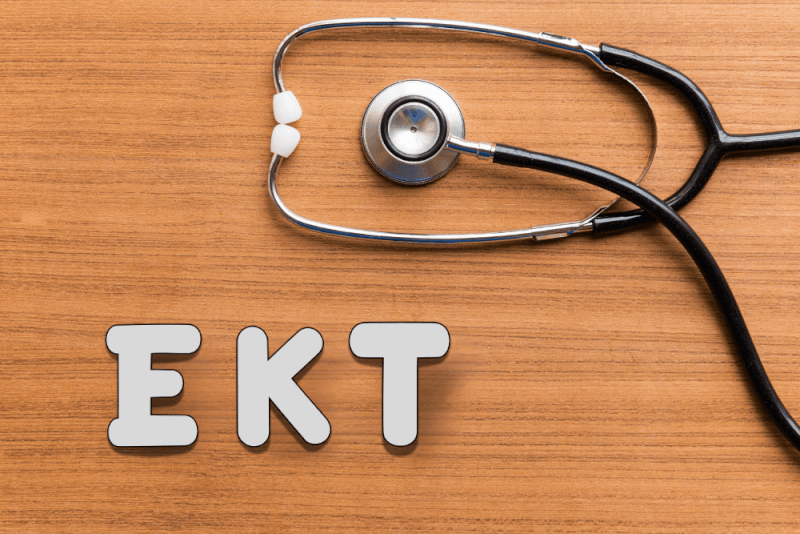What is an eating disorder?
An eating disorder is a serious and complex health issue that affects a person's physical and emotional well-being. People with eating disorders develop an unhealthy relationship with food, their weight, or their appearance. Eating disorders are mental health issues that can be treated. If not treated, these disorders can lead to life-threatening problems.
Eating disorders, influenced by various complex factors such as culture, personality, brain biology, genetics, social influences, and mental health issues, are much more common than typically thought.
How is an eating disorder diagnosed?
Eating disorders are diagnosed by healthcare providers such as doctors and mental health professionals. Primary care providers may refer individuals to psychologists or psychiatrists after reviewing symptoms, conducting physical exams, or ordering blood tests. Subsequently, mental health professionals perform psychological evaluations to examine the person's behaviors and beliefs.
Mental health professionals look for the presence of specific criteria to diagnose eating disorders. It is not necessary for every symptom to be present in the patient to receive a diagnosis.
Causes of eating disorders
Genetic, environmental, and social factors play a role in the occurrence of eating disorders. Some individuals with eating disorders use control over food when they find it difficult to manage other aspects of their lives. Thus, eating disorders are often related to managing emotions rather than food itself.
Symptoms of eating disorders
People with eating disorders do not always exhibit visible symptoms. Eating disorders can occur in individuals of any body weight or size.
This is because eating disorders often involve thoughts or relationships with food. The specific symptoms of eating disorders vary depending on the type. Since they often mimic dieting, recognizing eating disorders can be extremely challenging.
Additionally, individuals struggling with eating disorders may be reluctant to share their concerns about food, making it difficult to understand the problem. Possible symptoms in individuals with eating disorders include the following:
- Mood changes
- Fatigue
- Fainting
- Dizziness
- Thinning hair
- Hair loss
- Frequent bathroom visits after eating
- Unexplained weight changes
- Severe weight loss
- Unusual sweating
- Hot flashes
- Avoiding eating alone or with others
- Withdrawing from social activities
- Hiding or discarding food
- Obsessing over food, exercise, or weight loss
- Engaging in eating rituals like chewing excessively or eating in secret
Symptoms of anorexia
Anorexia nervosa symptoms include the following:
- Severe restriction of calories
- Eliminating certain types or groups of foods
- Excessive exercise
- Using laxatives or diet aids
- Vomiting after meals
Symptoms of bulimia nervosa
Bulimia nervosa symptoms include the following:
- Eating large amounts of food in a short period of time
- Feeling out of control and unable to stop eating during a binge
- Feeling guilty, ashamed, or intensely afraid of gaining weight after eating
- Using other methods like vomiting, excessive exercise, fasting, or taking laxatives to get rid of calories
- Using insulin medication
- Being constantly preoccupied with body shape
- Harshly judging oneself regarding personal appearance
Symptoms of binge eating disorder
Symptoms of binge eating disorder include the following:
- Consuming large amounts of food in a short period
- Eating more or faster than planned during a meal
- Eating even when not hungry
- Continuing to eat despite feeling uncomfortably full
- Fear of gaining weight
- Feeling guilt, disgust, or shame after eating
- Unhealthy emotions trigger binge eating
- Preferring to eat alone
- Experiencing at least one binge episode per week
Symptoms of pica
The sole symptom of pica is the obsessive consumption of non-food items or things with no nutritional value. People with pica often prefer a specific type of non-food item. In addition to the symptoms of pica, other issues or problems may also be present. These issues include:
- Anemia
- Roundworm infection
- Constipation
- Electrolyte imbalance
- Irregular heart rhythms
- Lead poisoning
- Small intestine and colon obstruction
Symptoms of night eating syndrome
Symptoms of night eating syndrome include the following:
- Waking up to eat
- Consuming excessive calories at night
- Decreased appetite during the day
- Depression and anxiety
Symptoms of rumination syndrome
Symptoms of rumination syndrome include the following:
- Regurgitating and re-chewing food irregularly
- Indigestion
- Stomach pain
- Digestive problems
- Bad breath
- Tooth decay
- Weight loss
- Cracked lips
- Babies with rumination syndrome may arch their backs or hunch over
- Babies with rumination syndrome may make sucking noises
Complications of eating disorders
Eating disorders are the second deadliest psychiatric disorder. Severely restricting calories, vomiting, or excessive exercise can harm overall health. If left untreated, an eating disorder can lead to the following serious complications:
- Arrhythmia
- Heart failure
- Acid reflux
- Gastrointestinal problems
- Low blood pressure
- Organ failure
- Brain damage
- Osteoporosis
- Tooth damage
- Severe dehydration
- Constipation
- Infertility
- Cessation of menstrual cycles
- Stroke
Emotional eating disorder
When a person turns to food to relieve stress or cope with difficult situations, it is known as an emotional eating disorder. Emotional eating can sabotage weight loss efforts.
In this condition, which often leads to overeating, the preferred foods are typically high-calorie, sweet, and fatty. People prone to emotional eating can manage their eating habits.
Emotional eating arises when food is used to suppress or soothe negative emotions such as stress, anger, fear, boredom, sadness, and loneliness. Since emotional eating disorders are commonly triggered by the challenges of daily life, the following tips can help keep it under control:
- Keeping a food diary
- Managing stress
- Checking the reality of hunger
- Seeking support
- Fighting boredom
- Not keeping appetite-stimulating and high-calorie foods at home
- Avoiding excessive calorie restriction during weight loss
- Choosing healthy snacks
- Learning from setbacks
Eating disorders in children
The incidence of eating disorders in children under the age of 12 is steadily increasing. Although the exact reason for the prevalence of eating disorders among children is not fully understood, it is believed to be due to hereditary or environmental factors.
Children diagnosed with chronic illnesses are also frequently affected by eating disorders. Especially children diagnosed with insulin-dependent diabetes are at high risk. Additionally, eating disorders are often seen in children struggling with depression, anxiety, or other mental illnesses. Early symptoms include the following:
- Fear of stomach pain
- Aversion to tastes and textures
- Temper tantrums
- Excessive bowel movements
- Worry about body image
Later symptoms of eating disorders in children include the following:
- Avoiding food
- Reducing portion sizes
- Weight loss
- Stunted growth
- Thinning hair
- Delayed puberty
- Constipation
- Digestive problems
- Hiding or hoarding food
- Mood swings
- Growth of fine hair on the body
Treatment methods for eating disorders
The treatment of eating disorders varies depending on the type and the specific needs of the patients. Possible methods include the following:
Cognitive-behavioral therapy
The most appropriate therapy for the patient is determined by a mental health professional. However, cognitive-behavioral therapy is often recommended for many individuals with eating disorders. This type of therapy helps understand and change distorted thinking patterns that drive behaviors and emotions.
Medication for eating disorders
Some individuals with eating disorders are prescribed antidepressants due to underlying conditions such as anxiety or depression. These medications help improve the individual's thoughts about themselves and food.
Nutrition therapy
Registered dietitians trained in eating disorders can help patients improve their eating habits and develop nutritious meal plans. Dietitians also provide various tips on grocery shopping and meal preparation.
The Maudsley approach
This approach is a form of family therapy. It is a guidance therapy aimed at helping the parents of young anorexia patients. While parents learn healthier habits, they can actively guide their child in eating.
Types of eating disorders
There are various types of eating disorders, and an individual may have more than one type of eating disorder.
Anorexia nervosa
Individuals with anorexia nervosa may restrict food and calories to the point of self-starvation. Despite variations in body measurements, these patients exhibit an obsessive desire for weight loss. This condition is characterized by refusing to eat a healthy amount of food for their body type and activity level.
Bulimia nervosa
Individuals diagnosed with bulimia nervosa may consume large quantities of food in a short period or perceive they have. Subsequently, they try to burn off the calories by vomiting, using lax atives, or engaging in excessive exercise.
Binge eating disorder
Individuals with binge eating disorder engage in compulsive eating behaviors. They may eat large amounts of food in a short time or perceive they have. However, unlike bulimia, they do not try to burn off the calories. Instead, they feel uncomfortably full and struggle with feelings of shame, regret, and guilt.
Pica
Pica is an eating disorder characterized by the obsessive consumption of non-food items or things with no nutritional value. Depending on when and why the patient engages in this behavior, it can be normal, expected, or harmless.
However, consuming toxic or dangerous items can lead to significant problems. Pica primarily affects children under six and pregnant women but can also occur in individuals with certain mental health issues.
Night eating syndrome
Night eating syndrome is an eating disorder associated with insomnia, where patients wake up several times during the night to eat. If untreated, maintaining a healthy weight becomes challenging, and the risk of health issues like diabetes and high blood pressure increases.
Rumination disorder
Also known as mericism, rumination syndrome is an eating disorder where undigested food returns from the stomach to the mouth. The person may re-chew and swallow it or spit it out. This condition typically occurs after every meal.
Rumination may follow the sensation of belching and usually does not involve nausea or retching. The regurgitated food does not taste sour or bitter since it has not mixed with stomach acid long enough for complete digestion.
Vomiting can be a learned and intentional action in some cases, while in others, it may be an involuntary reflex. Individuals with rumination syndrome do not typically vomit due to stomach discomfort or feeling ill.







